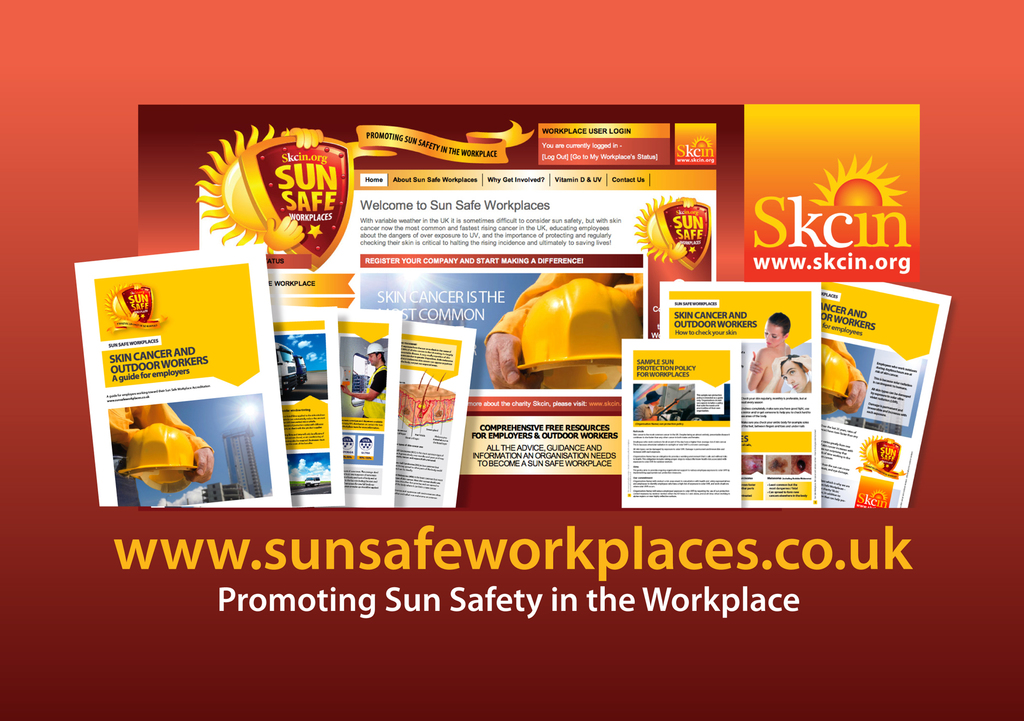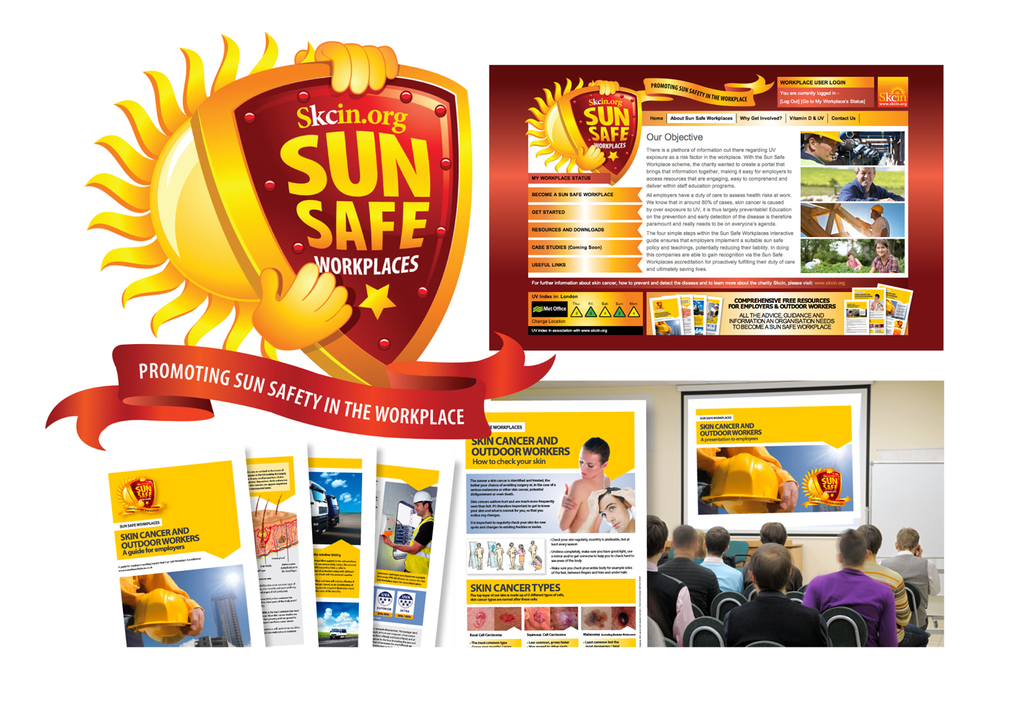
Kelly Rose
Editor

Kelly Rose
Editor
With variable weather in the UK it is sometimes difficult to consider sun safety, but with skin cancer now the most common and fastest rising cancer in the UK, educating employees about the dangers of over exposure to UV, and the importance of protecting and regularly checking their skin is critical to halting the rising incidence of the disease and ultimately to saving lives.
What is the Sun Safe Workplaces scheme all about?
Sun Safe Workplaces is an accreditation scheme specifically designed to guide employers through the process of implementing a suitable and successful Sun Safe Policy and educational program into their organisation. The website (www.sunsafeworkplaces.co.uk) and its associated content provide both employers and employees with the most comprehensive range of free resources made available to UK organisations with the key objective of preventing skin cancer through education.
The Sun Safe Workplace Accreditation scheme has been developed by National Skin Cancer Charity, ‘Skcin’ (The Karen Clifford Skin Cancer Charity). The charity was established in 2006 with the primary objective to significantly raise awareness of the UK’s most common and fastest rising cancer. Skcin firmly believes that in order to combat the soaring rates of skin cancer education and early detection are key, particularly amongst at risk groups and more specifically outdoor workers.
Why Get Involved?
The facts about skin cancer in the UK are compelling:
•Skin cancer is the most common cancer in the UK
•Rates of the disease are rising faster than any other cancer and have quadrupled over the last 30 years
•More people die from skin cancer in the UK than Australia
•Malignant melanoma – the deadliest form of the disease – is one of the most common forms of cancer amongst young adults aged 15-34
•Seven people die every day of skin cancer in the UK
•Experts estimate that by 2024 melanoma will become the most common form of all major cancers
A duty of care
All employers have a duty of care to assess health risks at work. We know that in around 80% of cases, skin cancer is caused by over exposure to UV, it is thus largely preventable.
UV is a known carcinogen and employees that work outdoors during daytime hours (being exposed to varying levels of UV from the sun), have a higher risk of developing skin cancer. Thus, UV radiation should be considered an occupational hazard for people who work outdoors.
Employers therefore have a duty of care to educate their employees about the health implications the sun can have, the importance of appropriately protecting their skin and regularly checking their skin for signs of change. In addition employers have a duty to ensure the provision of appropriate protection from the sun.
Education on the prevention and early detection of the disease is therefore paramount and really needs to be on everyone’s agenda. The four simple steps within the Sun Safe Workplaces interactive guide ensures that employers implement a suitable sun safe policy and educational program, potentially reducing their liability. In doing this companies are able to gain recognition via the Sun Safe Workplaces accreditation for proactively fulfilling their duty of care and ultimately saving lives.
There are considerable benefits and cost savings associated with the provision of sun protection and appropriate education:
•Fewer absence days caused by the associated conditions of sunburn
•A healthier and better-informed workforce
•Reduced risk to employees of the UK’s most common and fastest rising cancer, caused by long-term exposure to the sun
•Due diligence – by providing a healthy workplace environment, employers can protect themselves from claims and litigation.
There is a plethora of information out there regarding UV exposure as a risk factor in the workplace. With the Sun Safe Workplace scheme, the charity wanted to create a portal that brings that information together, making it easy for employers to access free resources that are engaging, easy to comprehend and deliver within staff education programs.
We hope we have done that, please visit www.sunsafeworkplaces.co.uk to find out more and to register your organisation within the scheme. Remember, skin cancer is largely a preventable disease and it is only by working together that we can reduce rates and ultimately save lives from the UK’s most common form of cancer.


The Karen Clifford Skin Cancer Charity (Skcin),
1a Mabel Grove West Bridgford
Nottingham
Nottinghamshire
NG2 5GT.
UNITED KINGDOM
0115) 9819 116